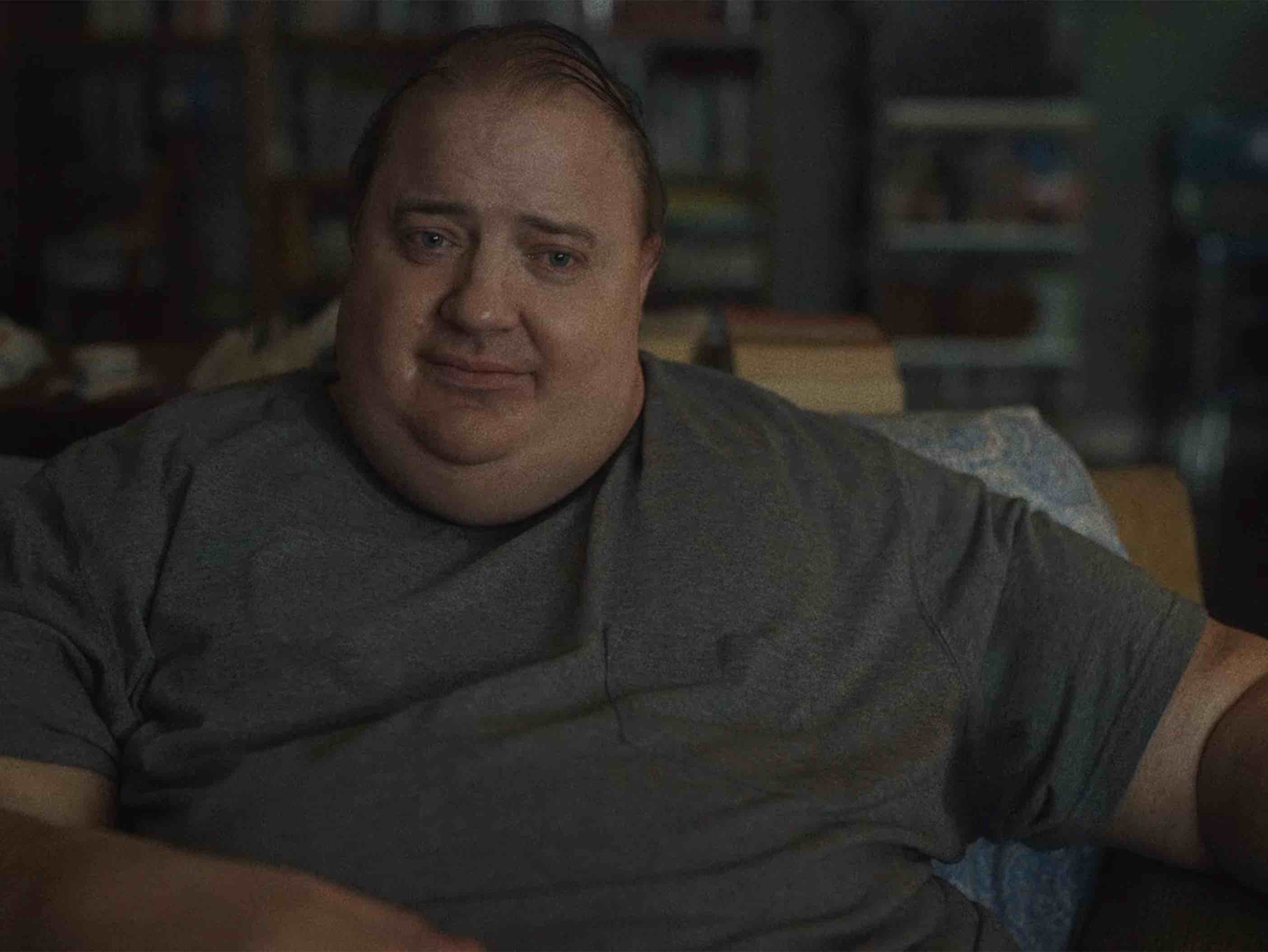If the 20th century was the age of the common man, the 21st is the age of the common man’s confounding. Between shambolic politics, culture wars and actual war, nothing is turning out quite as well as anyone expected. What was meant to be an era of freedom and enlightenment seems to have become the opposite.
Nowhere is this more evident than in the way we interact with one another. In what feels like the blink of an eye, discourse, and by extension society, has taken up residence on the internet. The pace of the outrage cycle has gathered such speed that we must always be finding something new to be incensed by. Social media has made us myopic, scrutinising everyone and everything until we find or invent reasons to clutch at our collective pearls. The result is utterly wretched and it’s sucking the joy out of just about everything faster than we can create new things to hate.
The latest victim of this treatment is The Whale, a claustrophobic body horror film from Black Swan director Darren Aronofsky which arrives in UK cinemas today. Before this week, I knew two things about The Whale: one, that it was The Mummy star Brendan Fraser’s big return to Hollywood more than a decade after he fell off the A list; and two, that there was a fat suit and people weren’t very happy about it.
Ahead of the film’s release, the controversy centred around the decision to put Fraser, who famously gained weight during his time out of the spotlight, in a fat suit. Now that they’ve actually seen it, critics both professional and of the social media variety have turned their ire to the unflattering portrayal of fatness itself.
It is certainly a deeply unflattering portrayal. In The Whale, adapted from Samuel D. Hunter’s award-winning play, Fraser plays Charlie, a morbidly obese literature professor teaching classes online to hide his monstrous size from his students. His 300lb fat suit is an impressive feat of prosthetic design, and clearly intended to repulse. But The Whale isn’t really about how fat a fat man can be. Charlie’s struggle with traumatic events and the resulting loss of control over both his life and his eating habits are what make the story so raw and so utterly compelling. The fat suit is simply a vehicle to deliver this.
So much great art is great exactly because it makes us uncomfortable; it forces us to take an earnest look at ourselves
Charlie’s best friend Liz, played brilliantly by Hong Chau – now Oscar nominated for the role – berates him incessantly for the health risks that come with his size, yet she enables him all the while. The film forces us to challenge our ideas of what it means to care for another person, and ourselves. It’s depressing, grotesque and hopeful all at once.
I would go so far as to say The Whale is the greatest film I’ve ever seen (yes, even better than It’s a Wonderful Life and The Shawshank Redemption). Aronofsky has pulled off a visceral piece of filmmaking. His direction combines with an ingenious score and grippingly claustrophobic staging to build into something truly stellar. One scene in particular shows Charlie’s spiral into an episode of uncontrolled binge-eating that invokes genuine horror more gut-wrenching than anything the horror genre has spit out in years. It is a scene so well choreographed, acted and edited that it would be reductive to accuse this film of simply being mean to fat people.
I won’t give away how it ends, but it is in these raw and often brutal moments that Aronofsky provides a refreshing sense of honesty, a theme he riffs on throughout the film. Anything less – a kinder, more sensitive depiction; a slightly smaller fat suit – would utterly defeat this purpose.
Ultimately, The Whale feels less like a movie and more like the distillation of a baroque oil painting. It delivers the same drama, the same interplay between light and dark, and induces the same guttural response – and makes perhaps the most compelling argument yet that something as populist as cinema can be legitimately seen as serious art.
This is why the direction in which our culture is heading matters so deeply. There is an extraordinary power to this film, yet critics are performatively unimpressed because it doesn’t fit with the trend for ‘body positivity’. The idea that a work of art so raw and arresting can and should be lost beneath such puritanical noise is deeply disquieting.
There was a time when being honest, even if it made others uncomfortable, was a liberal position. Now discomfiting any section of an audience, we are told, must be avoided at all costs. So much great art is great exactly because it makes us uncomfortable; it forces us to take an earnest look at ourselves. Charlie’s grotesque size, the disgust he can read on the faces of those around him, the destructive concern of a friend – all of these can and should raise profound questions for the audience. But instead of responding with an open mind, more and more of us turn to art with suspicion, treating it as something that must be exorcised or sanitised.
I fear a society where we lose the ability to respect and appreciate great works of art, whether or not we like them. But it seems we’re heading in that direction – and that, to me, is the truly offensive thing.
You can also read Deborah Ross’s review of The Whale, published in this week’s Spectator.







Comments